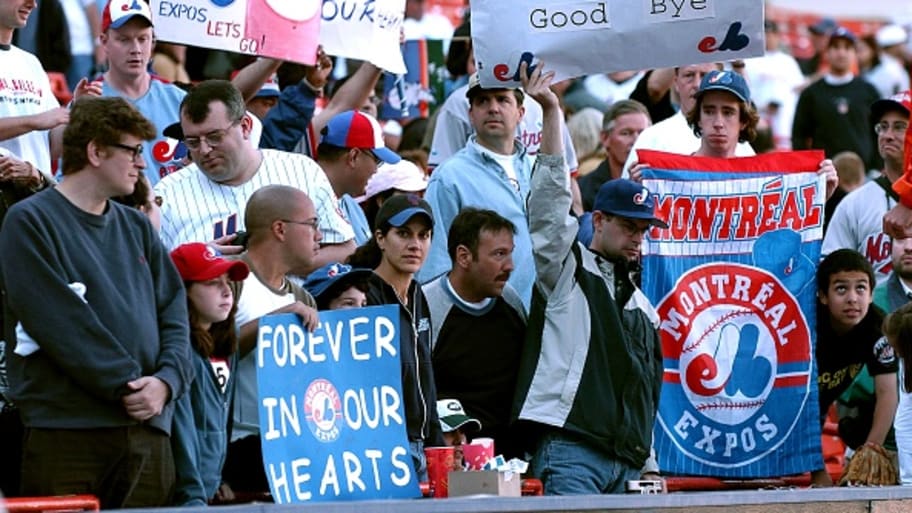This week has been a strangely newsy one for the Montreal Expos, a Major League Baseball team that has not taken the field since 2004.
The release of a Netflix documentary examining the team's demise—entitled Who Killed the Montreal Expos?—was long planned. However, the filmmakers probably didn't count on Canada's younger MLB team—the Blue Jays—reaching the World Series and throwing an even bigger spotlight on baseball in the Great White North.
Like many of baseball's more famous relocations—the Dodgers', the Giants', or (more recently) the Athletics'—the Expos' defection to Washington to become the Nationals marked the culmination of a long and arduous process. It was also unique in that it involved a quasi-ownership "trade" that influenced the fate of a franchise thousands of miles away from Quebec.
Here's a look at how Canada's second-largest city lost its team.
How did Jeffrey Loria buy the Expos?
Liquor magnate Charles Bronfman and five partners founded the Expos in 1969—a time when Montreal was still widely known as Canada's cultural capital (Toronto wouldn't jump it in population until Canada's 2001 census). The Expos found sledding tough in their early years, making just one playoff appearance (1981) despite numerous winning seasons. Bronfman sold the team to Claude Brochu in 1991, and after a tumultuous decade, Brochu sold a controlling stake to art dealer Jeffrey Loria in 2001.
How did Jeffrey Loria get out of his deal with the Expos?
For much of Montreal's existence, the team faced one overarching question: how would the team replace Olympic Stadium? The oft-derided building long overstayed its welcome for the 1976 Summer Olympics, and Loria quickly sought public funding for a new park. As attempts to replace Olympic Stadium dragged, MLB attempted to fold the Twins and Expos—a move only stopped by a successful court challenge. Amid this turmoil in Montreal, Loria sold the team to MLB and used the money to buy the Marlins—taking the Expos' resources with him.
How did the Expos get to Washington?
MLB's purchase of the team was effectively the ballgame for Montreal, but the years leading up to the team's relocation produced a slew of interesting what-ifs. First, in 2003 and 2004, the Expos split their home games between Montreal and San Juan's Hiram Bithorn Stadium—routinely drawing better in Puerto Rico than in Canada. Along with San Juan, several non-Washington cities circled the Expos, with Charlotte and Portland discussed as contenders. Ultimately, the American capital won the Expos sweepstakes, and the team took on the name of several early Washington teams—the Nationals.
What is the legacy of the Expos' final years?
For many years, the legacy of the Expos' messy relocation seemed to be MLB's eagerness to avoid a repeat—but the Athletics' widely reviled, slow-motion departure from Oakland appears to have scuttled that. Montreal retains an appetite for baseball, as the Expos live on as a nostalgia item—"The DNA is still here even though they’re gone," documentary director Jean-François Poisson told GQ's Matthew Roberson Thursday. If expansion one day brings baseball back to Quebec, the Expos—as ever—will likely need to do something about Olympic Stadium, which somehow still stands on the eve of its 50th anniversary.
More MLB on Sports Illustrated
This article was originally published on www.si.com as How Did the Expos Get to Washington? Explaining Their Strange Ownership Swap.
